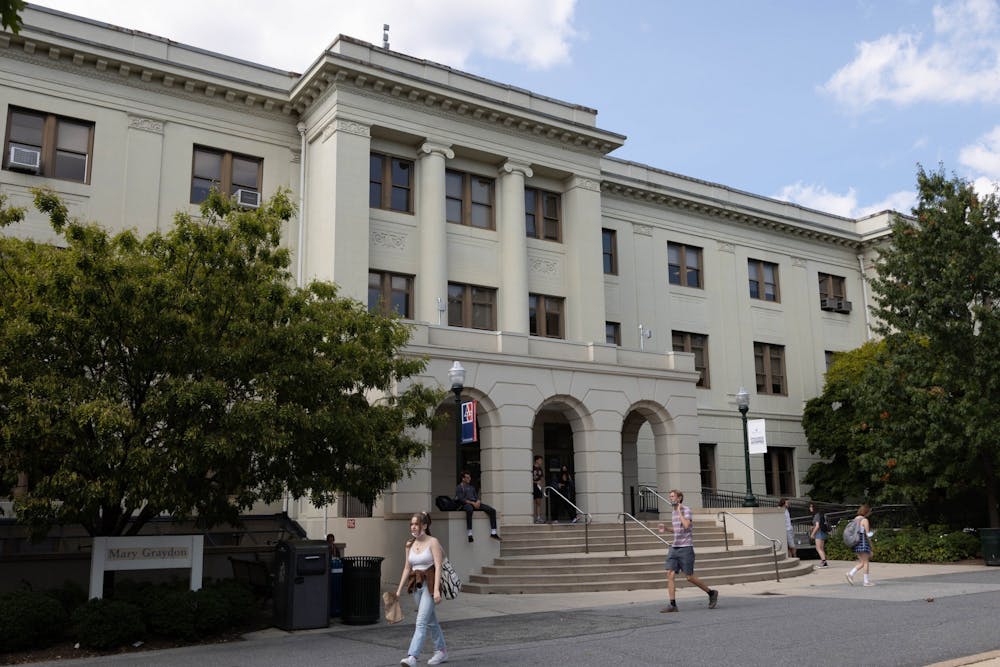American University faculty and students are working at the forefront of an interdisciplinary project that spans 14 institutions to research existing food systems and use that knowledge to improve sustainability efforts.
The project is RECIPES: the Multiscale Resilient, Equitable and Circular Innovations with Partnership and Education Synergies for Sustainable Food Systems.
In September, the University received a five-year $15 million grant from the National Science Foundation — the largest externally funded award in the University’s history — to study wasted food.
According to RECIPES Director and College of Arts and Sciences professor Sauleh Siddiqui, the goal of applying for this grant was to get support in researching how to make the food system in the United States “more sustainable, equitable and resilient.”
Siddiqui saw wasted food as an issue with both environmental and social implications in the United States. The Department of Agriculture estimates that up to 40 percent of all food produced in the country is not eaten, while chronic food insecurity looms large nationwide.
“Instead of thinking of wasted food as a symptom that we’re trying to cure about the food system, we’re really trying to use it as a lens to understand the underlying larger systemic problems,” Siddiqui said.
In February, members of the RECIPES team published a research paper that examines how establishing a more sustainable food system will require infrastructure changes. Researchers wrote about physical aspects of infrastructure that would need innovation, including existing food production and transportation practices. They also researched changes to consumer behavior that would be essential to addressing the fact that 37 percent of wasted food in the U.S. is directly attributable to decisions made by people in their homes.
The paper also advocated for expanding interdisciplinary data collection methods that would improve computational modeling of the interactions within the food system and relevant environmental, social and health outcomes.
According to the RECIPES website, one of the team’s long-term goals is to set up a publicly accessible virtual database on wasted food in the U.S. It also strives to produce the first undergraduate student science journal on food systems, while implementing a new assessment for monitoring the success of its diversity, equity and inclusion efforts that can serve as a template for future research projects.
Although the research is still in its early stages, Siddiqui said one important finding the RECIPES team has seen is simply how little is known about the food system at large.
“If you take any food item in your home, even as simple as an apple, I surely cannot tell you [where it came from],” he said. “Maybe we can figure out where the apple was grown, but I can’t tell you the human costs of growing that apple — like who were the people involved, all the different processes, where that apple has been, I have no idea where the little sticker on the apple came from.”
Liana Garcia, a junior in the School of International Service and a research team leader on life cycle assessment for RECIPES, said the realization that society needs a “more holistic idea of what food waste is” has motivated a lot of the group’s research so far.
“We’re kind of hoping to better pinpoint the inefficiencies and kind of losses from different sectors of the food supply chain, and how to develop and implement a better food system and kind of transform it into a more sustainable, circular system,” Garcia said. Garcia added, “And improve just the general accessibility on information about food loss because it’s so all over the place and kind of not really as investigated as other things, like energy use.”
Garcia encouraged students with interests in the STEM field to apply for assistant positions in the project.
“The opportunities are basically endless for what you want to do and if you want to move up,” Garcia said. “You can always be adamant about your interests in the research.”





